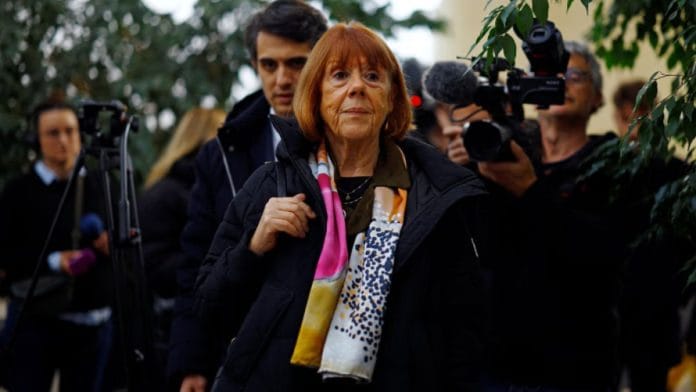New Delhi: Frenchman Dominique Pelicot, 72, was Thursday sentenced to 20 years in prison for decade-long abuse of his wife that involved drugging and raping her, and inviting dozens of strangers to sexually assault her. Along with Pelicot, 50 other men were convicted of aggravated rape.
The court also held Pelicot guilty of producing and distributing explicit images of his wife, his adult daughter Caroline, and his sons’ wives.
Pelicot admitted in court that he had drugged his wife Gisele and orchestrated her abuse by inviting strangers online to rape her for nearly a decade from 2011 to 2020. Men of diverse ages, occupations, races and backgrounds were invited to his home for the assault and videos of their acts were recorded.
The conviction of Pelicot marks the end of France’s largest-ever rape trial.
The three-month legal battle sent shockwaves through the country and beyond. On Thursday morning, police cordoned off the road opposite the courthouse as hundreds gathered in support of Gisele. A massive banner reading “Thank You, Gisele” was draped across a wall facing the courthouse entrance, and the crowd chanted “rapist, we see you” as the defendants arrived for the verdict, the BBC reported.
The 50 men involved were sentenced to prison terms ranging from 3 to 15 years. The defendants now have 10 days to appeal.
Gisele, 72, was present in the courtroom to hear the sentencing, having waived her right to anonymity.
Also Read: Politicisation of rape in India has been long overdue. In fact, it’s a good thing
Pelicot’s crimes
Dominique Pelicot and Gisele, now divorced, got married in 1973 and have three children.
In 2011, Pelicot began drugging Gisele, mixing powerful sedatives into her food and drinks. This caused memory lapses and long periods of unconsciousness, leading her to believe she was developing a serious illness such as Alzheimer’s.
After retiring in 2013, the couple moved to Mazan, a small town in southern France, where Pelicot started inviting strangers to assault his drugged wife. He meticulously documented the abuse, amassing over 20,000 photos and videos that were stored in folders labelled “her rapists” and “abuse”, according to media reports.
Pelicot’s criminal behaviour came to light in 2020, when he was caught secretly filming up women’s skirts in a market near Paris. A subsequent police investigation revealed his extensive collection of photos and videos, exposing years of orchestrated abuse.
Gisele, upon being informed, insisted on a public trial to expose her husband and the other men accused of raping her.
In court, Pelicot admitted his guilt and expressed regret, claiming he had told the “whole truth” since the trial began in September. While he asked for forgiveness, defence lawyers for the other 50 men argued that Pelicot had manipulated them into assaulting Gisele. Some of the accused also apologised to Gisele in their final statements, media reports said.
The Pelicot case has led to huge support for Gisele and demands for a shift in France’s approach to crimes against women. It has also challenged the conventional image of a rapist as an unknown outsider. The case has also prompted calls for reforming rape laws, particularly to address the country’s low conviction rates.
Currently, rape in France is defined as “any act of sexual penetration committed against another person by violence, constraint, threat, or surprise”, meaning prosecutors must prove intent to rape. The Pelicot case has sparked discussion on whether the issue of consent should be added to France’s legal definition of rape, as it has been in other European countries.
United Nations’ agencies state that the deadliest place for a woman is at home, with an average of 140 women and girls killed per day in 2023 by an intimate partner or family member. Globally, an intimate partner or family member was responsible for the deaths of approximately 51,100 women and girls in 2023, up from 48,800 in 2022, according to UN Women and UN Office on Drugs and Crime.
(Edited by Nida Fatima Siddiqui)
Also Read: Does India have a rape culture? Pick a newspaper, maybe a mirror






